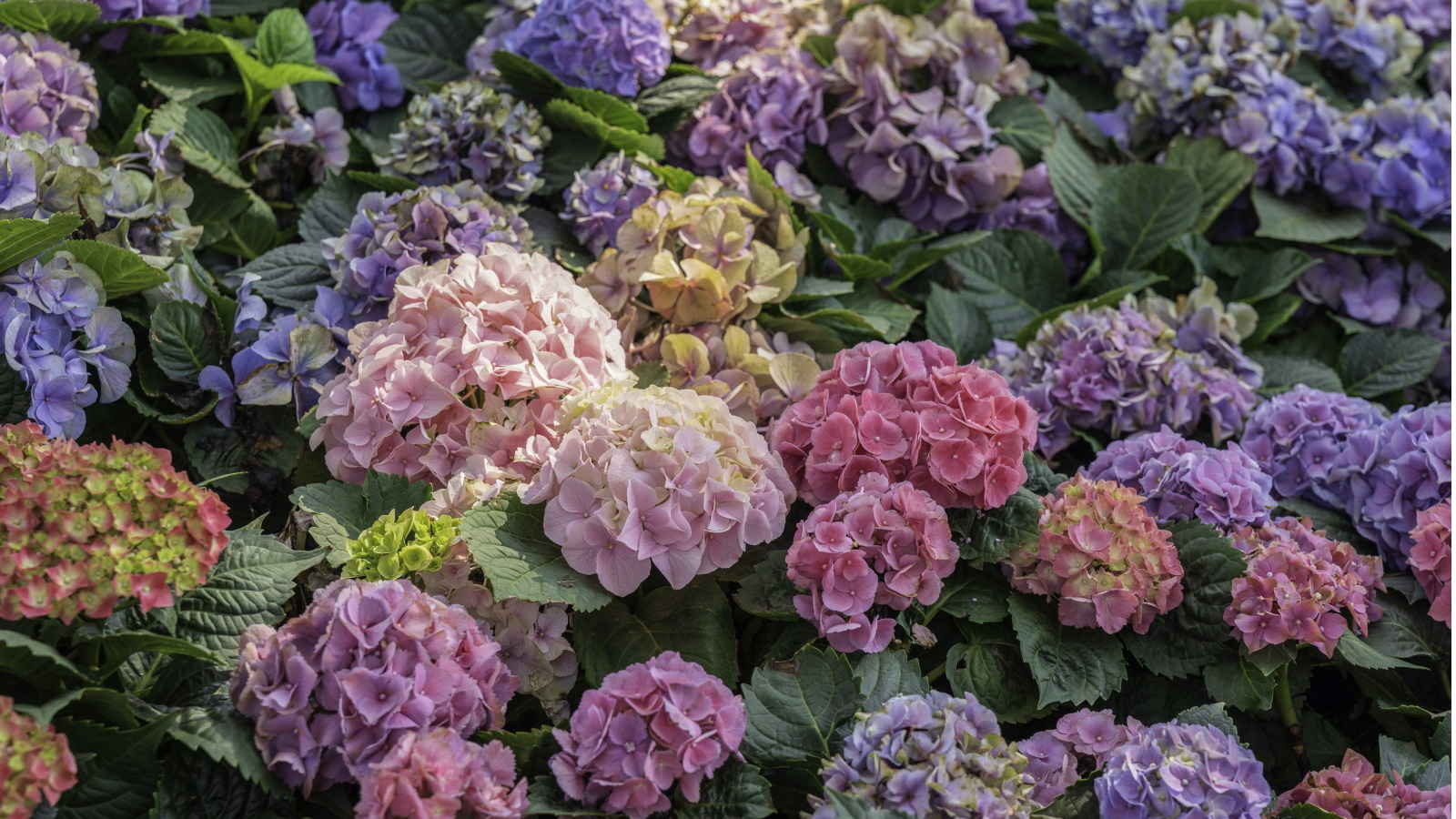
If you live in an area that gets lots of wandering deer, you'll be familiar with the need to constantly find new ways to protect your garden plants. Before you put any precautions in place you need to figure out which of your plants are safe.
Luckily, there are plenty of deer-resistant plants to choose from when planning a garden that won't become damaged by these beautiful creatures. However, you might need to think twice about growing hydrangeas in your yard if you often get visiting deer, as these popular summer blooms are a favorite for deer to snack on.
But don't lose all hope, this doesn't mean you can't have hydrangeas in your yard. Here, experts have shared their top tips for protecting hydrangeas from deer.
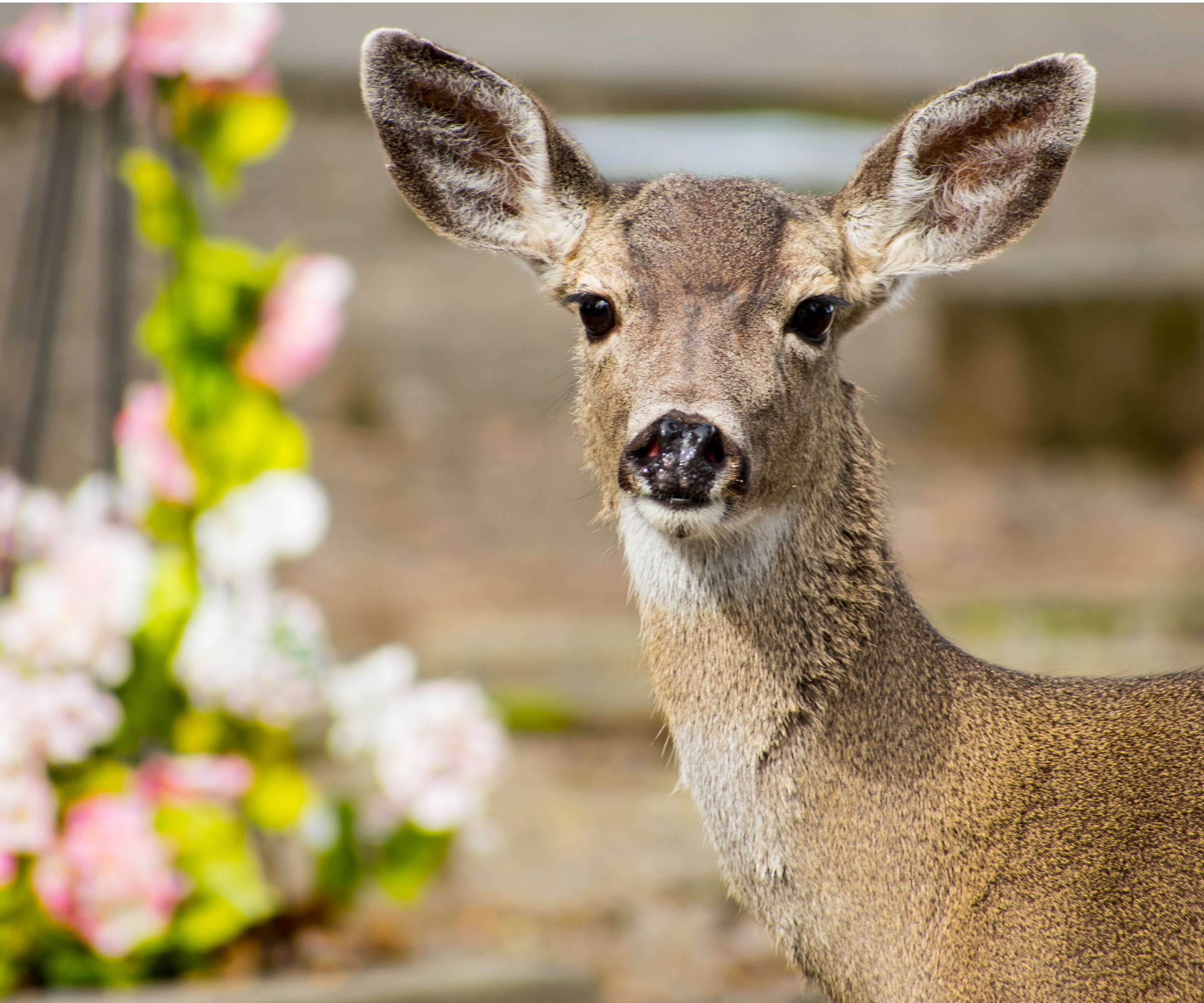
Are hydrangeas deer-resistant?
Unfortunately, even with so many hydrangea varieties to choose from, these showy flowers aren't deer-resistant.
'Although, some types of hydrangeas – mountain (H. serrata) and bracted (H. involucrata) – seem to less desired by deer, likely due to the texture of their foliage,' notes Amy Enfield, Senior Horticulturist at ScottsMiracle-Gro. 'Deer favor the tender flower buds that are within their reach, often leaving your hydrangea flowerless for the season,' she explains.
The good news is that minor grazing and damage from deer are unlikely to affect the health of your hydrangeas in the long term and you can expect to see them bounce back.
'However, yearly grazing of established hydrangea plants may result in never having flowers, and repeat grazing of young plants can severely damage your hydrangeas so they may not be able to recover,' says Amy.
'While nothing may be fool-proof, gardeners eager to protect their hydrangeas can try a handful of methods,' she adds.
5 ways to protect hydrangeas from deer
If you notice that your hydrangeas aren't blooming, it might be a symptom of deer grazing impacting their ability to flower, but this doesn't mean it's time to give up on growing hydrangeas.
While it can't be guaranteed that these methods will protect your hydrangeas from deer entirely, as Amy mentions, they are tried and tested and tend to be effective at reducing the damage caused by deer. Discover expert tips for protecting hydrangeas from deer below.
1. Put a physical barrier in place
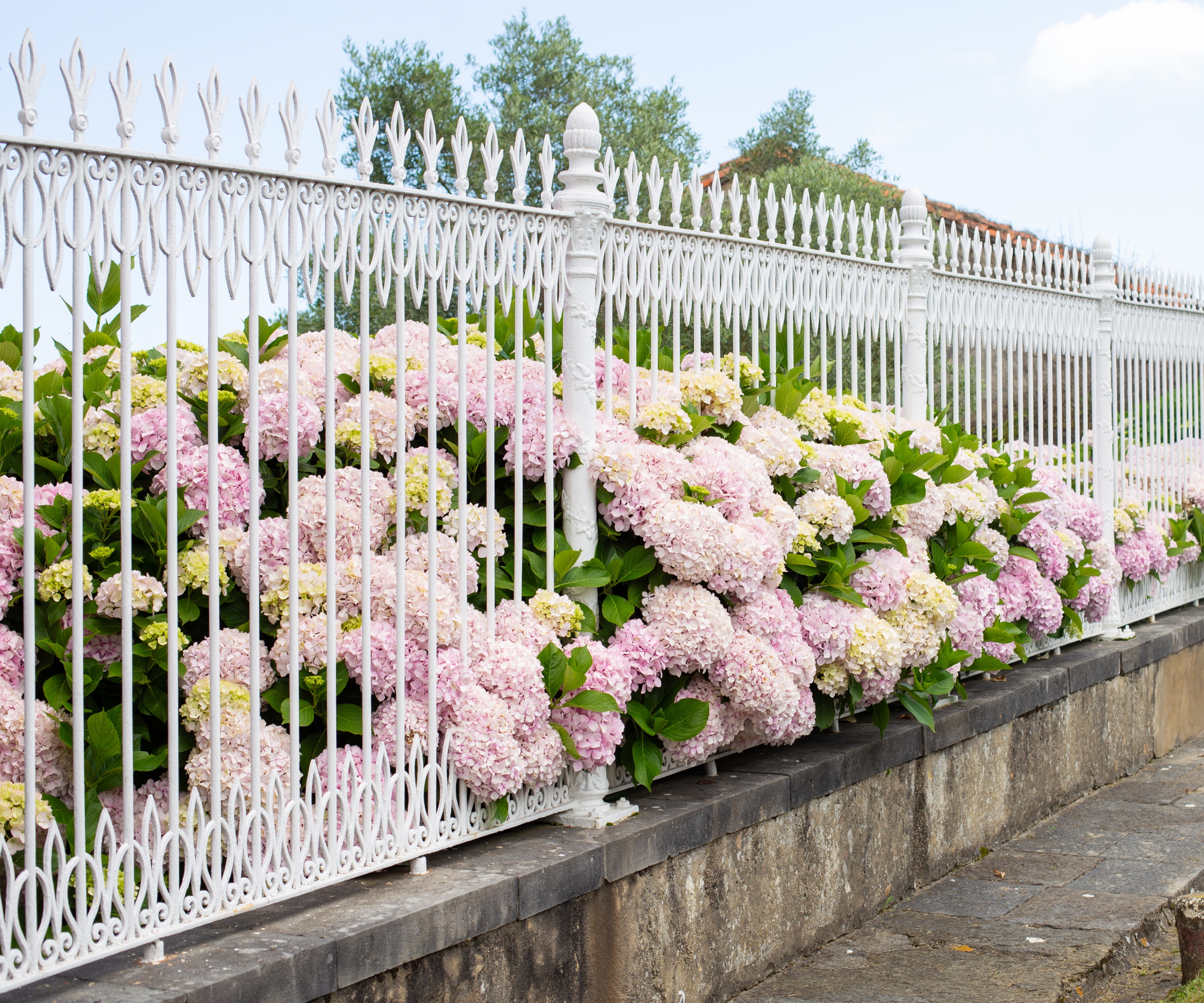
This one may sound obvious, but perhaps the most efficient way of keeping deer away from plants is putting a barrier in place that prevents them from getting to the plants in the first place.
'Consider using a physical barrier such as a deer fence at an adequate height they cannot jump over or use netting,' suggests Kelly Funk, gardening expert and president of Park Seed.
Opting for a deer fence is also a much more permanent solution to protecting your hydrangeas, so you can be reassured that they will be safe from deer year after year. 'Your fencing needs be at least eight feet high since deer can jump over shorter garden fences,' advises Amy.
Alternatively, you can cover your hydrangeas with this netting for garden protection from Amazon as a short-term solution.
2. Choose deer-resistant companion plants
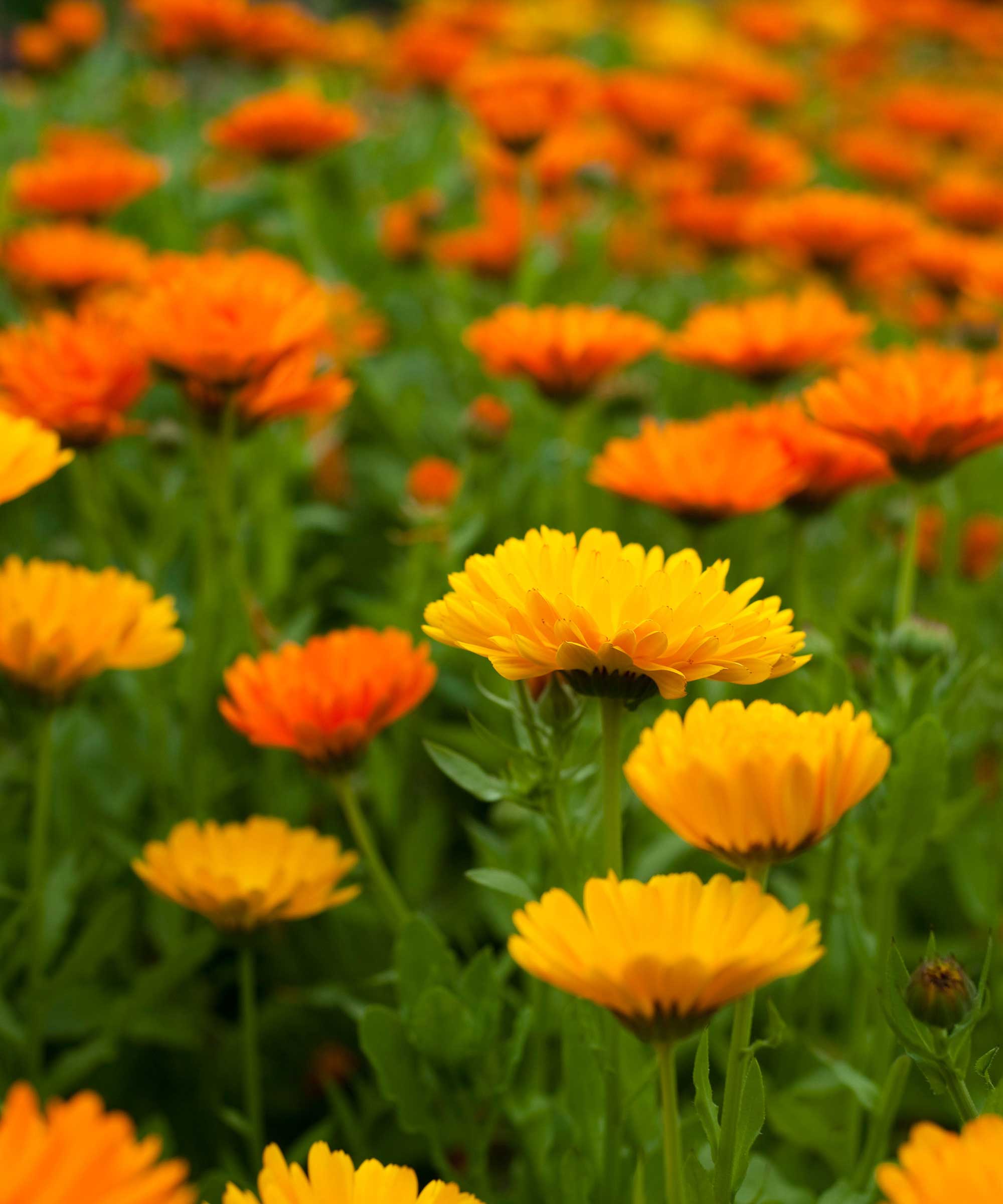
Companion planting is a popular technique used by gardeners to create a planting scheme that protects itself from damage. It involves growing different plants together that will keep pests and diseases away from each other.
'Plants with strong scents, like lavender, marigolds and sage are less appealing to deer and can be planted around hydrangeas to create a natural scent barrier,' says Amy. 'Planting your hydrangeas near plants with spines, spiky growth or thick leathery leaves, like fountain grass, barberry or holly may also help keep deer away,' she adds.
It can be wise to place your hydrangeas among a fragrant garden or even plant a herb garden around your hydrangeas to create a scent that deer cannot stand and will be deterred by. Likewise, dense foliage can make it difficult for deer to reach your hydrangeas.
'However, deer-resistant companion planting is not fool proof,' warns Amy. 'If food is scarce, deer will bypass these plants and go directly for hydrangeas,' she adds.
There are lots of options for what to plant with hydrangeas but marigolds, available at Walmart, are a trusted companion plant that deter many pests and wildlife.
3. Use a deer-repellent sprays
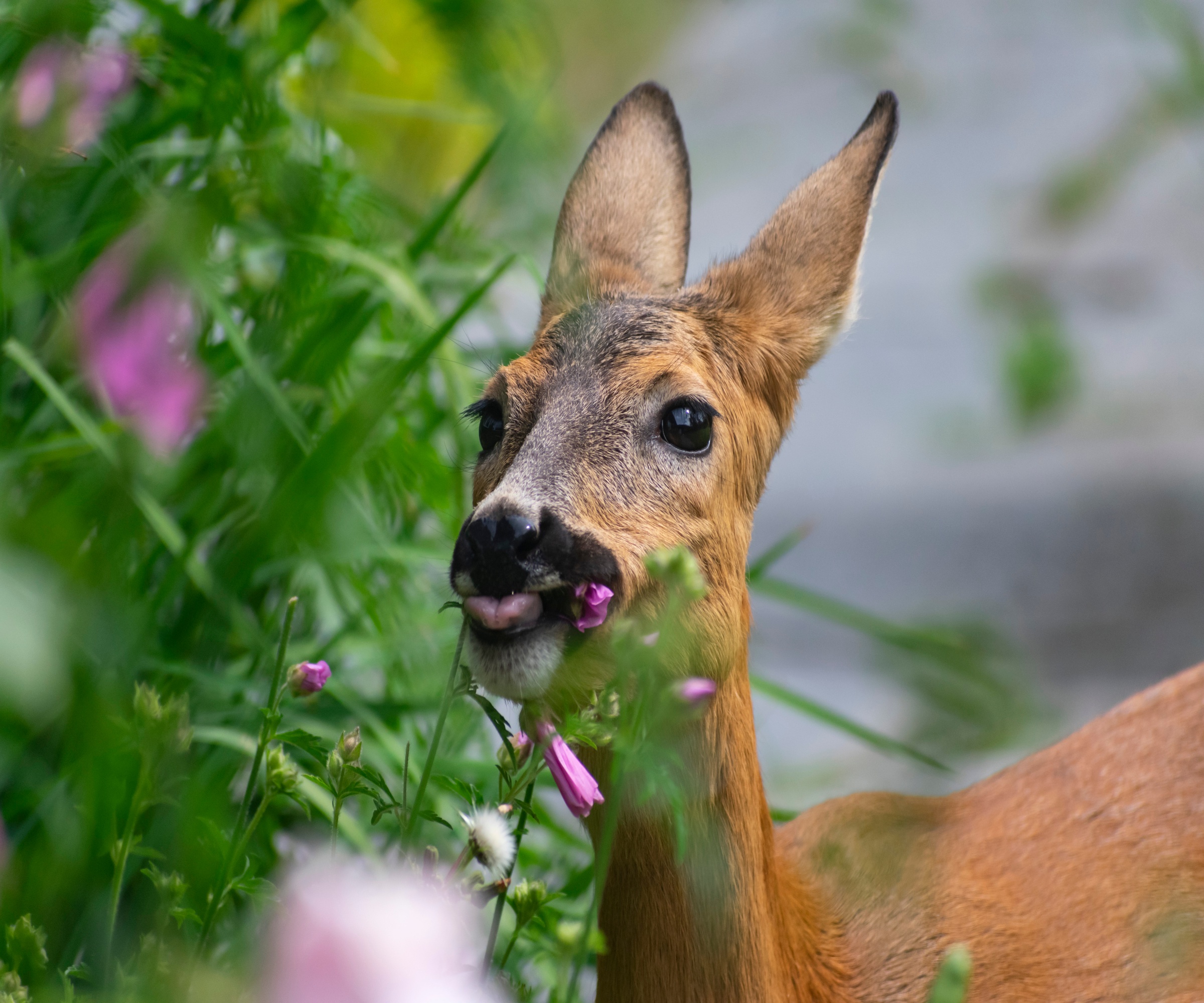
Another option if you're really struggling to keep deer away from your hydrangeas is to use deer-repellent sprays. There are many available on the market, just like this deer and rabbit repellent spray from Amazon that you simply spray around and on your plants.
'Commercial deer repellents, available as sprays or granules contain strong smells (such as essential oils, garlic, rotten eggs or predator urine) which deter deer,' explains Amy. 'Repellents should be applied regularly, especially after rain, for continued repellence,' she advises.
It's important to always follow manufacturer instructions for the repellent you have bought and take care to use essential gardening tools for skin protection, like gardening gloves.
4. Install motion-activated deterrents
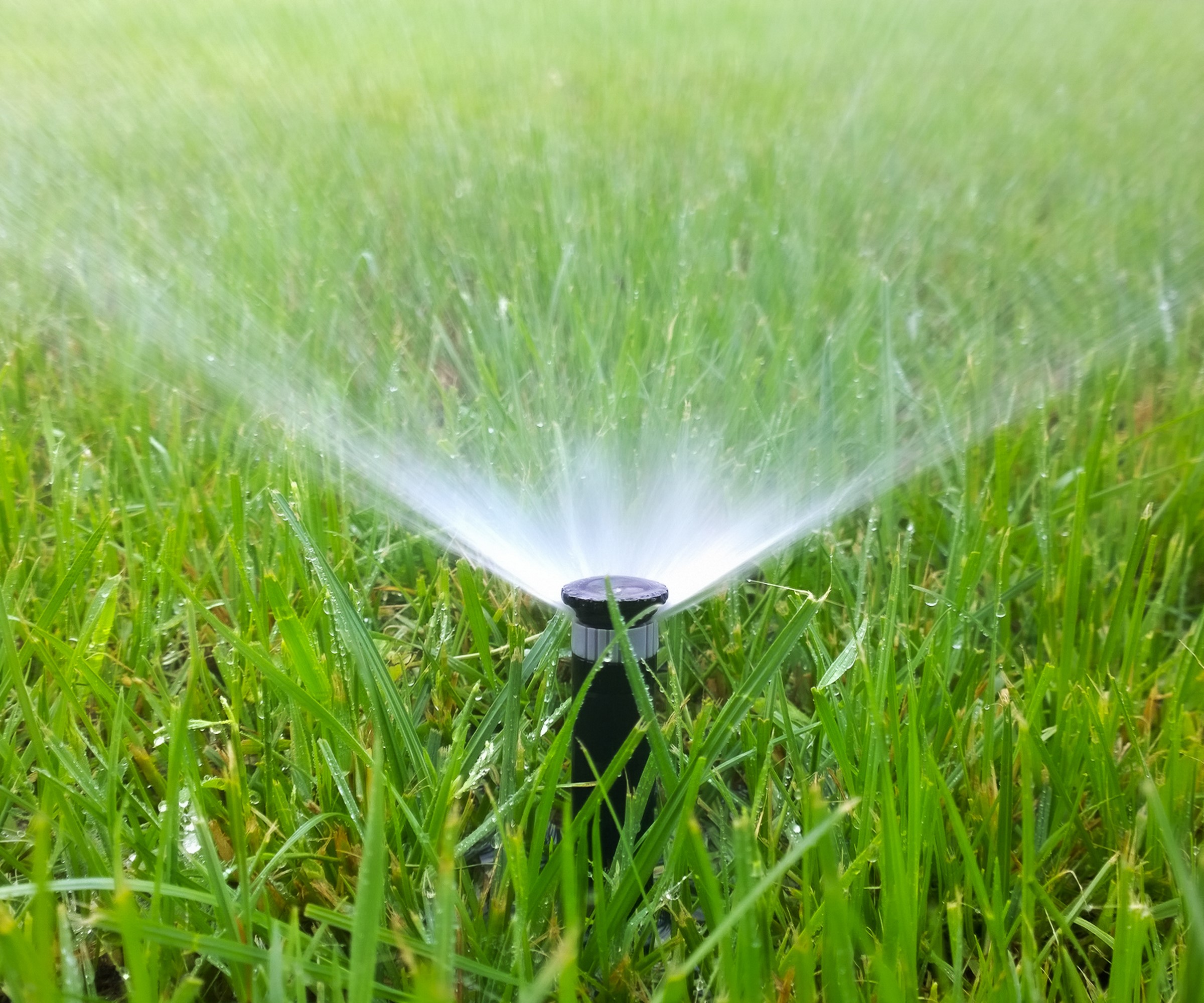
This method is one to consider if you have returning deer that won't seem to stay away. Existing in multiple forms, a motion-activated deterrent will scare away deer that come into your yard without causing them harm.
'Devices like motion-activated sprinklers or lights can scare off deer when they approach the plants,' explains Amy. 'This works best when deer are not used to frequent human activity,' she adds.
You can strategically place your sprinkler with a motion sensor, like this one from Amazon, near your hydrangeas so that it goes off when deer, or other wildlife, approach. You can likewise consider garden security lighting to come on when deer come near your flowers.
'We use ultrasonic deer repellents (available at Amazon) in our production fields to keep deer away from our plants. These repellents are easy to install, solar-powered and our preferred method of deterrence,' says Tammy Sons, horticulturist from TN Nursery.
5. Plant your hydrangeas close to your house
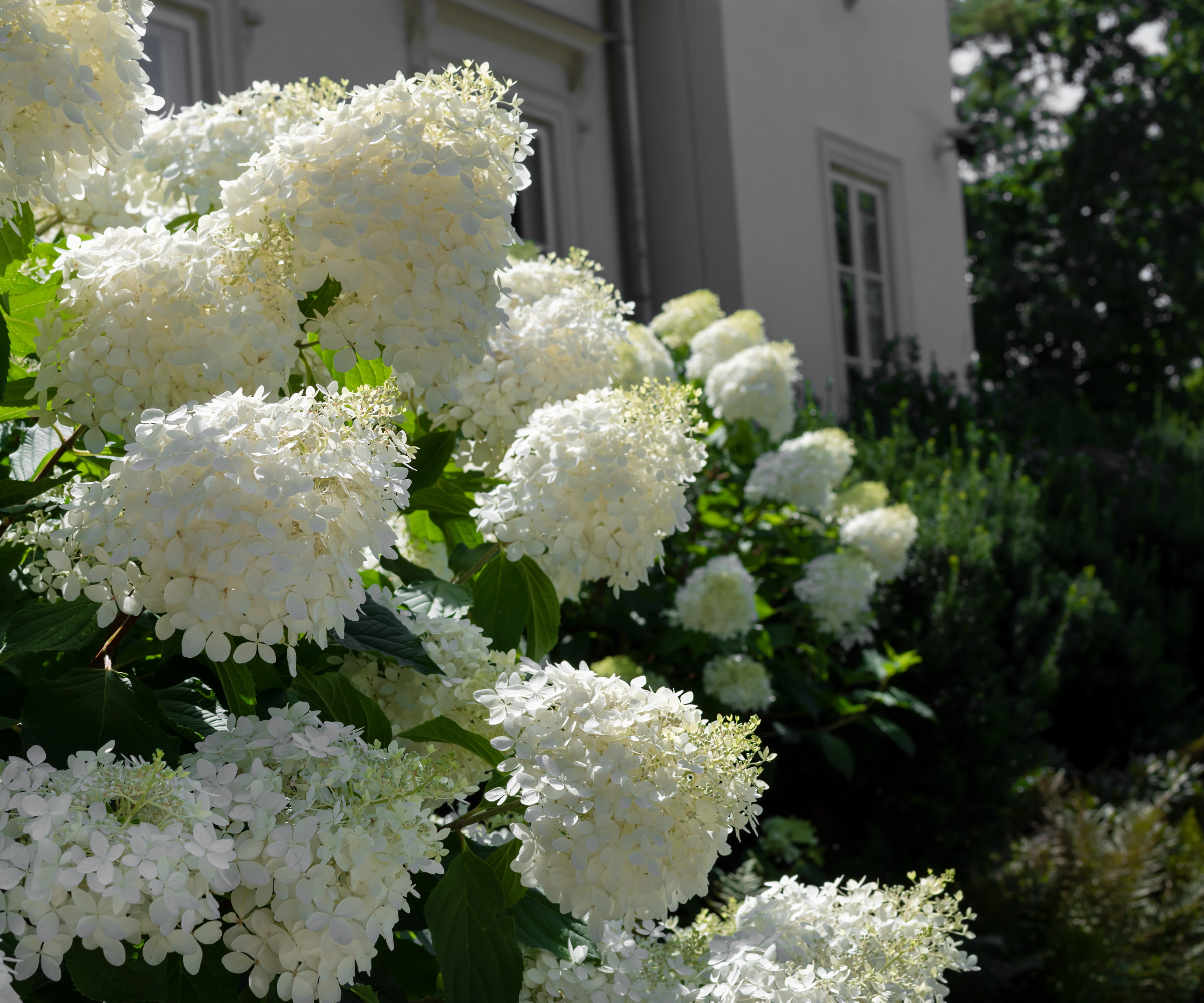
Working in a similar way to motion-activated repellents, human activity can scare away deer in your yard. Thinking carefully where to place hydrangeas can therefore be an effective solution.
'Planting your hydrangeas close to your house as part of a foundation planting or around a patio can also help deter deer feeding. Deer are naturally skittish and will avoid areas with lots of activity such as near a house,' says Amy.
Other reasons you might want to grow hydrangeas near your house is that they're one of the best shrubs for privacy and you can make your hydrangeas pink or blue based on pH of soil to brighten up the planting around your home. As Amy mentions, you might also want to consider hydrangeas as part of your patio planting where you spend a lot of time in the yard and will discourage deer coming nearby.
FAQs
When should I protect my hydrangeas from deer?
While it's possible for deer to munch on your hydrangeas at any point of the year, experts say that it's more likely to be a problem during colder seasons.
'Deer grazing is more problematic during late fall and winter, when food is scarce. Using protective barriers during this time is important to help keep your hydrangeas safe,' says Amy Enfield, Senior Horticulturist at ScottsMiracle-Gro. 'With a combination of several protection strategies, you may be able to keep deer away you’re your hydrangeas or at the very least reduce the damage the deer cause,' she adds.
Damage from wildlife in your yard is sometimes inevitable, but with these methods you can keep your hydrangeas safe and deter deer from them. Alongside these protective measures, try providing an alternative food source for the deer in your yard, such as grasses, fruits and store-bought deer food. This way you can enjoy these creatures while ensuring they don't snack on your prized flowers. It can also be a good idea to deer-proof the rest of your yard by choosing deer-resistant ground cover plants and deer-resistant spring bulbs.







